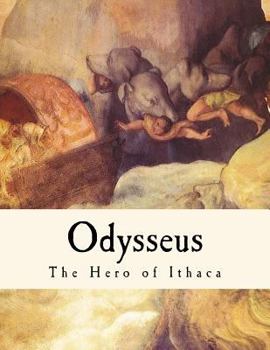Odysseus: The Hero of Ithaca
Select Format
Select Condition 
Book Overview
Odysseus
The Hero of Ithaca
Adapted from the Third Book of the Primary Schools of Athens, Greece
By Mary E. Burt and Zenaide A. Ragozin
GREEK CLASSICS
Odysseus, also known by the Latin name Ulysses, was a legendary Greek king of Ithaca and the hero of Homer's epic poem the Odyssey. Odysseus also plays a key role in Homer's Iliad and other works in that same epic cycle.
Husband of Penelope, father of Telemachus, and son of Laertes and Anticlea, Odysseus is renowned for his brilliance, guile, and versatility (polytropos), and is hence known by the epithet Odysseus the Cunning (metis, or "cunning intelligence"). He is most famous for the Odyssey, ten eventful years he took to return home after the decade-long Trojan War.
"Happily the Greek nation, more than any other, abounds in literary masterpieces. Nearly all of the Greek writings contain an abundance of practical wisdom and virtue. Their worth is so great that even the most advanced European nations do not hesitate to introduce them into their schools. The Germans do this, although their habits and customs are so different from ours. They especially admire Homer's works. These books, above all others, afford pleasure to the young, and the reason for it is clearly set forth by the eminent educator Herbart:
"'The little boy is grieved when told that he is little. Nor does he enjoy the stories of little children. This is because his imagination reaches out and beyond his environments. I find the stories from Homer to be more suitable reading for young children than the mass of juvenile books, because they contain grand truths.'
"Therefore these stories are held in as high esteem by the German children as by the Greek. In no other works do children find the grand and noble traits in human life so faithfully and charmingly depicted as in Homer. Here all the domestic, civic, and religious virtues of the people are marvellously brought to light and the national feeling is exalted. The Homeric poetry, and especially the 'Odyssey, ' is adapted to very young children, not only because it satisfies so well the needs which lead to mental development, but also for another reason. As with the people of olden times bravery was considered the greatest virtue, so with boys of this age and all ages. No other ethical idea has such predominance as that of prowess. Strength of body and a firm will characterize those whom boys choose as their leaders. Hence the pleasure they derive from the accounts of celebrated heroes of yore whose bravery, courage, and prudence they admire."
Related Subjects
History




